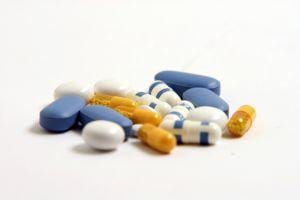Sexual desire fluctuates throughout women’s lives, due to vitamins, vitamin deficiencies, physiological body changes, illness, relationship status or hormone levels. A decrease or complete loss of sexual desire occurs in one-third of women between the ages of 18 and 59 according to a 1999 National Health and Social Life Survey. Deficiencies of vitamin A and vitamin E may also contribute to a lowered sex drive in otherwise physically healthy women. Sexual desire decreases related to former situations of abuse or trauma can be explored with a trained therapist.
Calcitrol
Calcitrol is a liquid vitamin that can decrease sexual desire, according to the National Library of Medicine. Calcitrol is used to improve Vitamin D levels and bone density. Typically people who have conditions affecting the parathyroid glands or their kidneys may need Calcitrol, sold under the brand name Rocaltrol or in an injectable form with the brand name Calcijex. According to RxList, Calcitrol may be excreted through breast milk and nursing mothers who have been prescribed Calcitrol need to discuss the need for the medication and the baby’s needs with their doctor.
Vitamin A Deficiency
Diets low in vitamin A can cause a lowered production of sex hormones. Add foods rich in vitamin A including eggs and dairy products, carrots, sweet potatoes, cantaloupe and kale. Add more dark orange fruits including mangoes, oranges peaches and apricots. Vitamin deficiencies affecting desire should first be addressed through food choices. Nutritional information including percentages of vitamins per serving may be found in a food count book or in an online nutrition database. (See Resources.) The deficiencies may also be addressed with the use of vitamin supplements.
Vitamin E Deficiency
Vitamin E contributes to sexual health and a deficiency can cause decreased desire. Vitamin E is an antioxidant aiding blood cells by quickly delivering oxygen to the body, including the pituitary gland which is in charge of reproductive organs. Adding more vitamin E to a diet in the form of wheat germ oil, sunflower seeds, salmon, broccoli, spinach, kiwi and mangoes. Women should consult their physician before taking a vitamin E supplement, particularly women with high blood pressure or diabetes.





